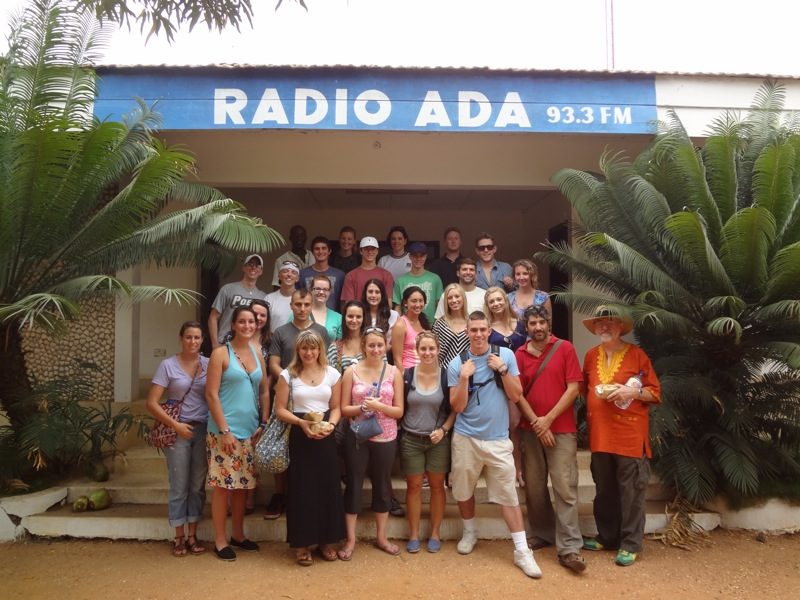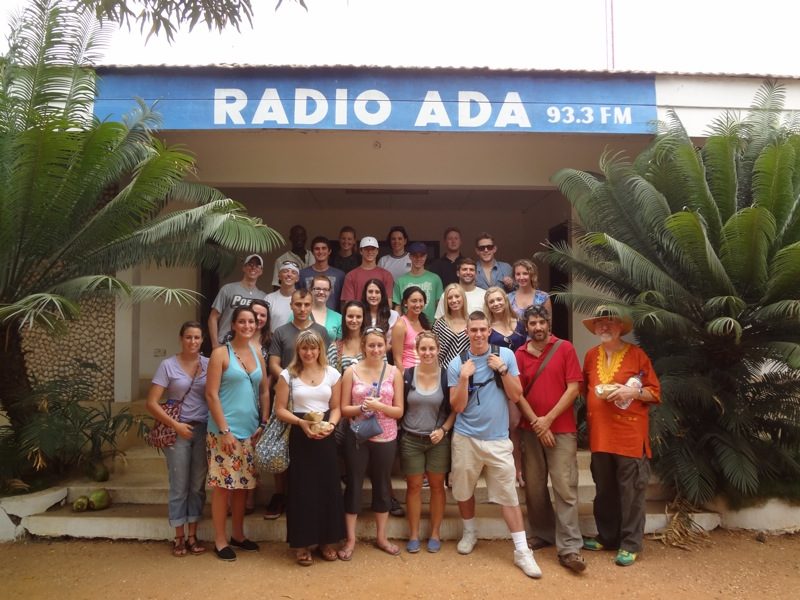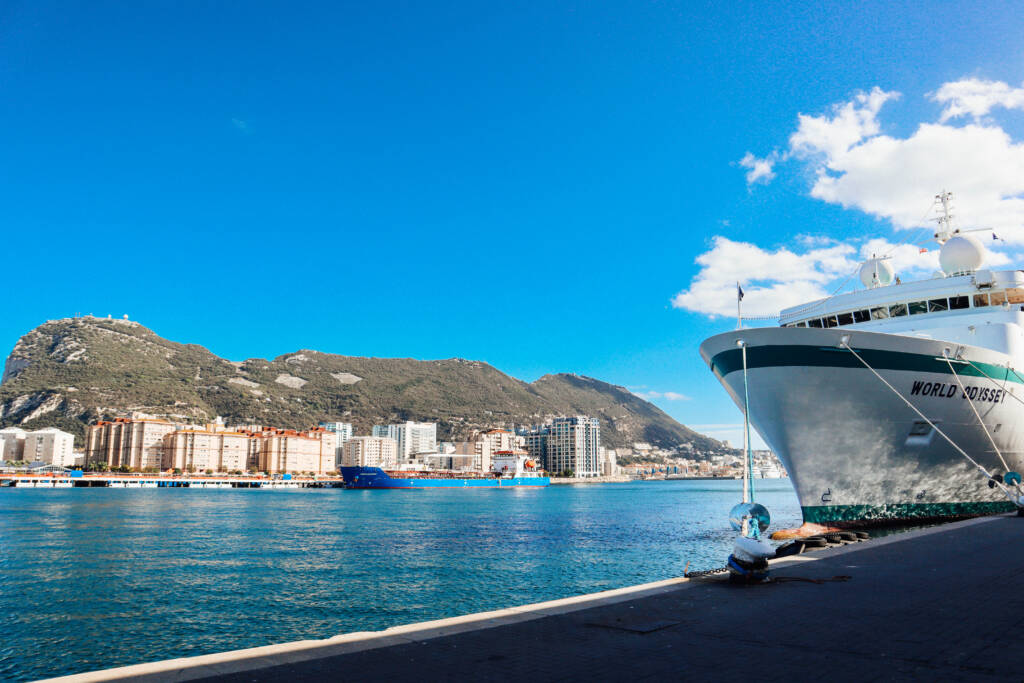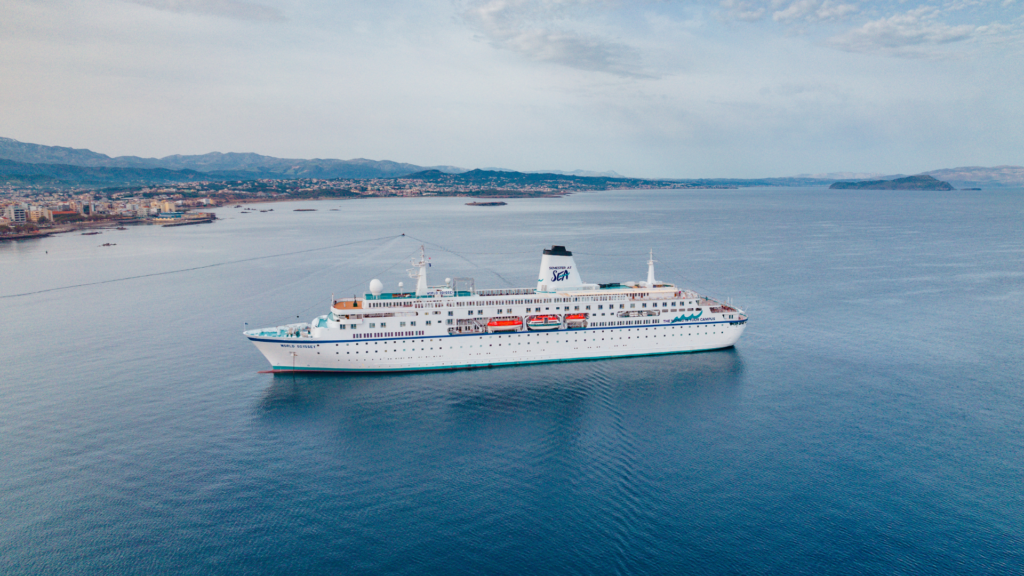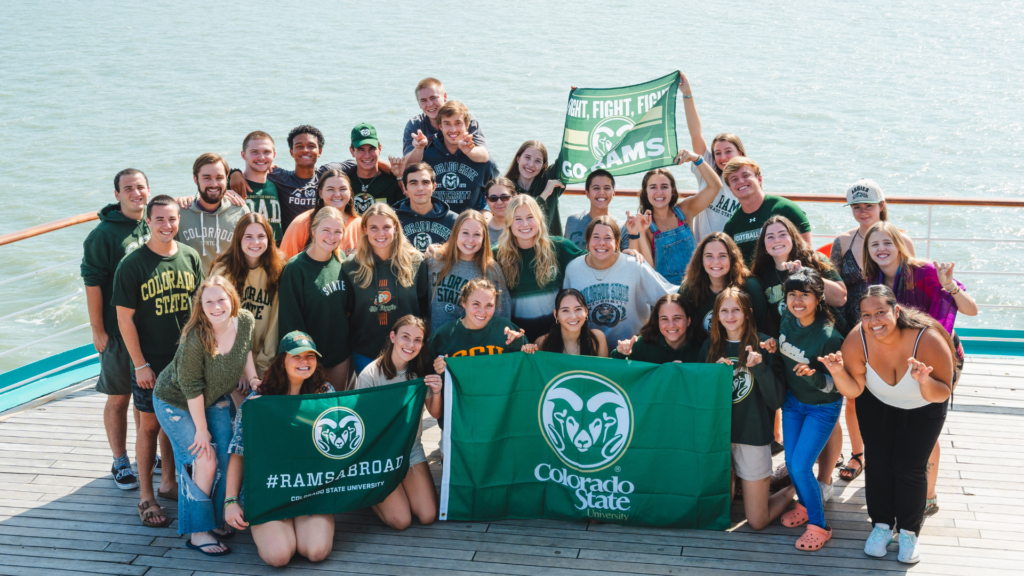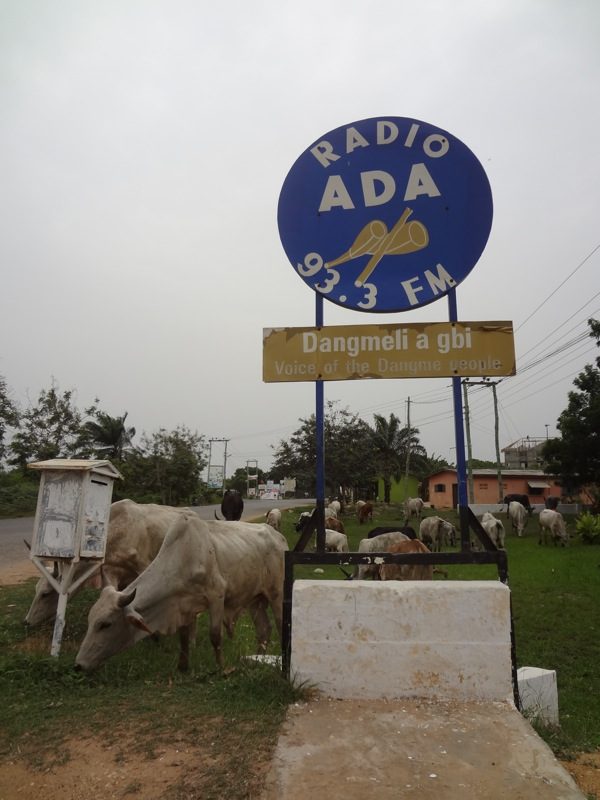 Next time you’re driving east out of Accra, remember to turn your dial to 93.3 FM for the latest in Dangbe language, music and culture. Communication students on the 108th voyage took a tour of Radio Ada last week in Ghana, learning firsthand about the immense power of radio in the developing world.
Next time you’re driving east out of Accra, remember to turn your dial to 93.3 FM for the latest in Dangbe language, music and culture. Communication students on the 108th voyage took a tour of Radio Ada last week in Ghana, learning firsthand about the immense power of radio in the developing world.
Radio Ada was the first community radio station in Ghana when it premiered in 1998, and it remains one of the only ways for the local Dangbe-speaking audience to receive news from the rest of Ghana and the world. Fishermen, salt miners, herders, and other laborers compose the bulk of Radio Ada’s audience, and the station’s staff of mostly volunteers works hard to promote a schedule of relevant programming.
In an area where many can’t read or write, Radio Ada faces the challenge of expanding adult literacy while also serving the news needs of the community. The station balances Ghanaian music with social programming, including women’s rights and literacy promotion. Kofi Larweh, a staff member at Radio Ada and the leader of Ghana’s nationwide literacy campaign, said the station seeks “to connect global issues to the village experience.” The programming links issues like global warming to the small sphere of the local listener’s life.
The staff provided SAS students with tours of the small but successful radio station, including the newsroom stocked with 15 daily newspapers, the well-equipped DJ booth, and the public-access studio, where anyone can stop by to record opinions, messages, or even a drum circle.
Sarah Title, a journalism and speech major at Miami University, recognized the chance to compare the culture of news and information between countries. “In the US we’re so used to having thousands of media outlets to choose from. Here, you’re given one radio station to get your news and that’s it,” she explained. “Thinking from a journalist perspective, it puts a lot of pressure on them to get it right. I feel that would make you a better journalist because you know these communities are relying on you.” In her comparison of American and Ghanaian radio, Title was most impressed by the initiative of the volunteers. “They’re doing this for the good of the people. That’s why journalism started and that’s something you forget about.”
The mix of rights and radio was also a perfect blend for Patrick Norton, a social justice and media studies student at Whittier College. “We went to study community radio, but in reality we got a history lesson, a women’s issues lesson, an environmental lesson,” he explained. “It really defines the term interdisciplinary, everything was truly connected, and that’s why I think media studies are so relevant. If you give people a voice, they can cover whatever issues they want.”
“These trips are really what make Semester at Sea,” Norton concluded. “They are not only relevant educational opportunities that we would otherwise never get, but they’re what keep us genuinely engaged with the countries and communities we visit.”
The students left Ghana this week with a new perspective on media thanks to Radio Ada. The comparative studies that began in rural Ghana will continue in urban Japan, when communications students tour a second community radio station in Kobe this April.
